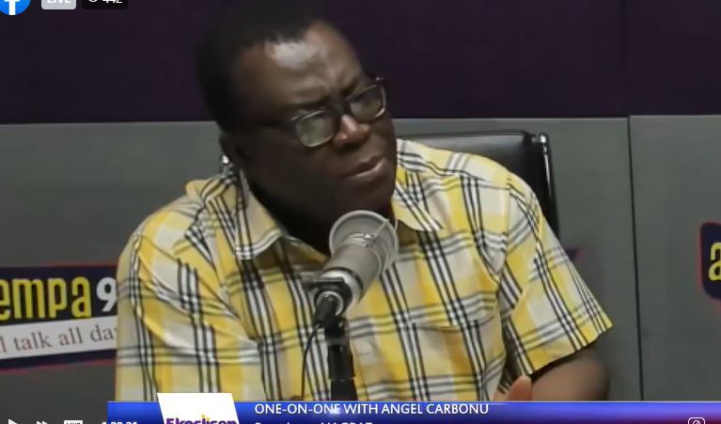The President of the National Association of Graduate Teachers (NAGRAT), Angel Carbonu, has expressed deep concern over Ghana’s lack of robust democratic systems that can function independently of human emotions, particularly during political transitions.
Mr. Carbonu noted that while Ghana is often celebrated as a beacon of democracy, the country has failed to establish institutional systems that transcend individual sentiments and ensure smooth governance transitions.
In an interview on Joy FM Top Story on Tuesday, December 17, he said: “As a Ghanaian and a public sector worker, I am very disturbed and worried. Over the years, we’ve been touting ourselves as a beacon of democracy, yet we have failed to put in place democratic systems that can transcend individual human sentiments."
His comments come at a time of heightened debate over the delayed mini-budget, with public sector salaries and government operations for early 2025 hanging in the balance.
Mr. Carbonou emphasized the need for automatic systems to manage critical state functions, especially during the period between elections and the swearing-in of a new government.
“If systems were in place, whenever elections are over and a government becomes a lame duck, and the newly elected party prepares to assume office, we would know how to transition seamlessly. We currently rely too much on human emotions and last-minute decisions.”
He cited the importance of operational budgets to sustain the nation during the transition period. “For example, the operational budget—funds necessary to manage this country for the next three months, covering salaries, emoluments, and financial obligations of various agencies—should have been managed by a system that automatically kicks in after December 7 until January 7 when power is handed over.”
Mr. Carbonou stressed that the absence of such systems exposes the country to unnecessary risks.
He also referenced past instances where laws were hurriedly passed during the final days of a government, only to have negative repercussions later.
Calling for urgent reforms, Mr. Carbonu urged stakeholders to develop clear frameworks that define what an outgoing government can and cannot do in its final month in office.
“…We should put in place measures to know what the government can do and cannot do in the last month.”
Latest Stories
-
Edem Agbana expresses readiness to begin work as MP after completing registration
47 minutes -
Katamanto fire: Gov’t must reconstruct the market, not the traders – Abuakwa South MP-elect
55 minutes -
High Church of Africa inaugurates mineral water factory on 2nd anniversary
1 hour -
Ablekuma North results collation suspended over another disagreement
1 hour -
Kwakye Ofosu says 10 Heads of State will attend Mahama’s inauguration
2 hours -
Rwanda-backed rebels seize key town in DR Congo
2 hours -
Nominate Alban Bagbin as Speaker of 9th Parliament – Mahama tells NDC caucus
3 hours -
Russian newspaper says its reporter killed by Ukraine drone strike
4 hours -
Hamas releases video of Israeli hostage Liri Albag as ceasefire talks resume
4 hours -
New York becomes first US city with congestion charge
4 hours -
Severe winter storm puts much of US on high alert
4 hours -
Ebi Bright, Baba Sadiq lose parliamentary elections after court-ordered collation
4 hours -
NPP’s Martin Adjei-Mensah declared MP-elect for Techiman South constituency
5 hours -
EC declares NPP’s Patrick Yaw Boamah MP-elect for Okaikwei Central constituency
5 hours -
NPP’s Charles Forson declared MP-elect for Tema Central after collation
5 hours

